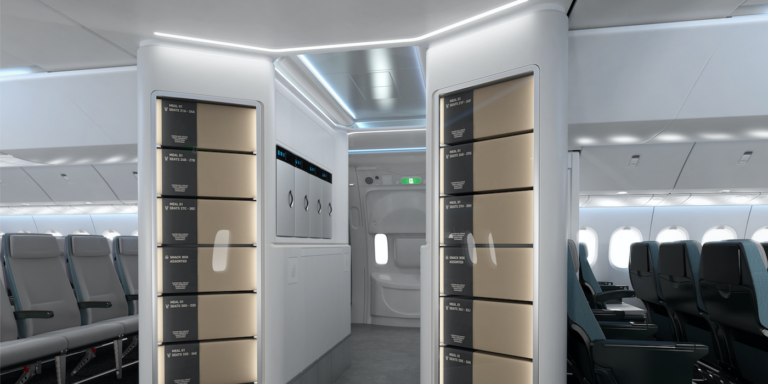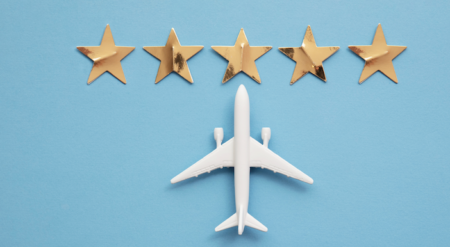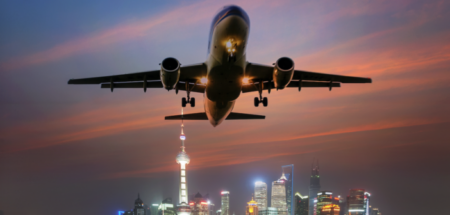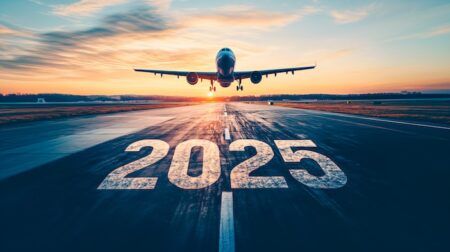In these strange and difficult times, it is easy to get caught up with the here and now. Much as we need to be protecting ourselves, our families and colleagues, and even people we don’t know, we also need to be protecting our industry. I believe, therefore, that we need to be thinking towards the future. AIM Altitude is currently planning ahead regarding how best to emerge from this situation; how a positive future will look; and what steps we can make now to bring confidence and optimism to the market.
Forward thinking
Much time has rightly been spent on shutting down and re-arranging our lives, both work and social, with home having become the focus for a while. However, we also need to consider how we will begin to ramp up again, when the situation changes. While some businesses are still thinking about how to bring people back into the workplace, we need to be thinking how we will bring passengers back to air travel.
Covid-19 is undoubtedly a game changer. Nothing will be quite the same again, but activity will pick back up in some form or other. There will be a new focus on hygiene and concerns about social distancing. This will apply to both passengers and crew alike.
Long-haul travel is thought to be one of the areas that will take the longest to recover. There is some logic in this. People are finding renewed pleasure in simple, local activities. Many people do, however, have an urge to travel and explore as a major goal in life. There are also business and social needs that simply cannot be met by online meetings and video conferencing. As hard as things might be now, there will be an end to this. There will be a return to normal, even if that constitutes a new ‘normal’ and it is up to aircraft interiors companies to embrace this.
Positive moves
Some positives will arise from the whole situation. Families are spending more time together, people are rediscovering old hobbies and finding new ones. Many businesses are adapting, whether to work in new ways or to offer new forms of service or product. Staff on furlough are still allowed to undertake training, and many companies and individuals are taking advantage of this opportunity. While some employees may be rushed off their feet, others are finding they have more time, meaning the ‘c’ tasks are being completed – the things that they would like to do but for which they never seem to find time. These are often the tasks that streamline the working day for the future or are of a more creative nature.
When ‘dress-down Friday’ was first introduced as a concept in London firms a decade or two ago, the idea was that by coming into the office in their home clothes, employees would keep a little of their home brain with them too, and would approach tasks and problems in a different way to their work-self. Now that the majority of us are working in our home clothes and home environment, maybe even with a child on one knee and a cat at our feet, this brings about a whole new way of thinking. It focuses the mind and releases new creativity.
Certainly, AIM Altitude’s design team are making the most of the creative opportunities and allowing the resetting of the industry to open up new ideas and options in terms of design and functionality.
New solutions
This creativity is going to be much needed in the new era of air travel. We will need to look at ways to solve some of the issues highlighted by Covid-19. Easyjet has already said that it will expect to keep the middle row of seating empty immediately after the pandemic recedes. This is a positive move in that the airline is planning ahead and trying to ease some of the difficult decisions that consumers will have to make. While this is a sensible option in the short-term, it is probably not financially sustainable in the long term.
As an industry, we need to be thinking about how we move forward. As a company, AIM Altitude is already thinking about what we can introduce to make the aircraft cabin a safer place, post Covid-19. The passenger experience will need to be streamlined to reduce contact with others. There are many possibilities open to airlines, like introducing antibacterial polymers and touch-free doors to minimise the spread of disease. Hand sanitising will be commonplace, with units built in at strategic points around the aircraft.
Social distancing is likely to continue in the future, with passengers so much more aware of the issues of mixing in close quarters. To this end, AIM Altitude believes a flexible cabin will become more important, to offer airlines the options of opening up spaces when required. Seating LOPAs may have to change, but again, offer flexibility and not just space. Whereas individual passengers will want to sit alone, families will still want to sit together, but with space between them and other passengers.
Where IFE touchscreens have become ever more popular, these may now have to be reconsidered and replaced with gesture controls. For this to happen, the pathway for introducing new electronics to the aircraft will have to be opened up to ensure that safety standards for their implementation can be met efficiently.
It is, of course, not just the passenger areas that will need to be reconsidered, but the crew areas too. Galleys will need to become more minimalist in design for easier cleaning and disinfecting. Ways of serving food will have to be considered that minimise contact and the chance of cross-infection. This is as much a matter of the personal safety of the crew and airline personnel as it is for the passengers. It is something that airlines are likely to take particularly seriously in the future, and protecting their own people will be a priority.
Reigniting a passion for air travel
These are challenging times, but aerospace is a hub of innovation. Some of the best design and engineering minds are available within our industry, and we are more than capable of finding ways in which we can reignite the public’s passion for air travel. Many of the plans towards AIX 2020 were already looking at making the aircraft cabin a more spacious and open environment. Other innovations were looking at developing the galley proposition to make the whole service more efficient, customised and sustainable.

Indeed, AIM Altitude alone was already working on exciting new products to meet both of these demands. These developments were of great interest and benefit to the airlines before the pandemic, but they can now be adapted to make them a true turning point in the future of the industry.





